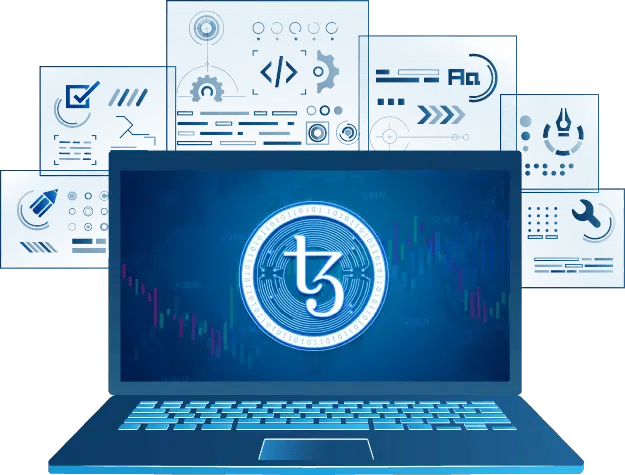Tezos Development Services

Meticulously Designed Tezos dApp Development Solutions
Tezos is gaining rapid adoption and growth due to its remarkable features like greater efficiency, high level security, and seamless scalability. If you are planning to tap into the Tezos market by launching your own application, we can facilitate your entry and participation in the market.
Our team of blockchain developers has extensive experience in creating blockchain applications on various platforms, making them experts in the development and deployment of Tezos dApps. They possess the skills to rapidly identify both on-chain and off-chain entities, develop microservices, establish Tezos nodes, create Tezos wallets, and seamlessly integrate Tezos APIs into your current solution or application.
Our Tezos Blockchain Development Services
We provide a full spectrum of services to transform your business use case into a powerful product that disrupts the market.
Connect with our subject matter experts to discuss your business use case.
Reasons to Choose Tezos for dApp Development
The following features make Tezos an ideal choice to build decentralized applications.
Connect with our subject matter experts to discuss your business use case.
Why Choose us for Tezos Blockchain Development?
By partnering with Antier, you can rely on a team of technical experts with real-world experience delivering end-to-end blockchain services.























































